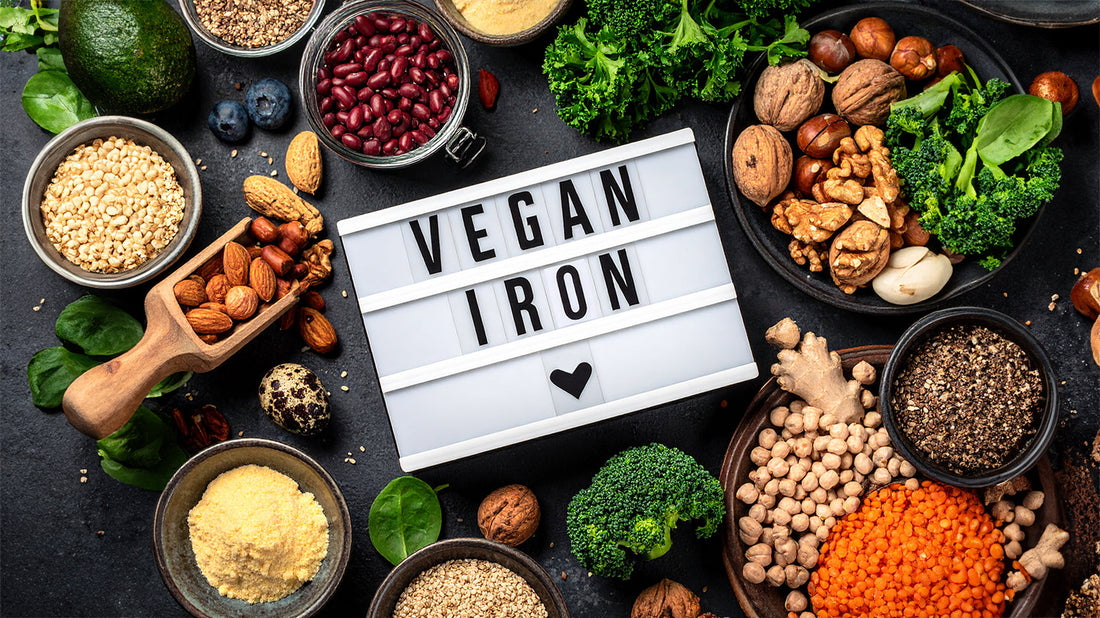
Boost Your Strength Naturally – Understanding Iron and Its Role
Share
The Iron Tales: Why This Mineral Matters for Your Health
Iron is one of the most important minerals for human health. As an essential micronutrient, it plays a vital role in the synthesis of haemoglobin, the protein in red blood cells responsible for carrying oxygen to every cell in our body. Without enough iron, our energy, immunity, and overall vitality suffer.
Why Iron Is Essential
Iron supports:
- The production of haemoglobin and myoglobin
- Oxygen transport to cells
- Energy and body strength
- Healthy skin and hair
- Strong immune function
Signs of Iron Deficiency
Iron deficiency is one of the most common nutritional concerns worldwide. Symptoms may include:
- Fatigue and weakness
- Low immunity
- Pregnancy complications
- Pale skin
- Headaches and chest discomfort
- Cold hands and feet
- Poor memory and cognitive function
The recommended daily allowance of iron is generally 8–10 mg, but this can increase during pregnancy, illness, or deficiency.
Iron and a Vegan Lifestyle
While iron is found in both animal (heme) and plant (non-heme) sources, plant-based iron is less bioavailable. This means that vegans often need to consume more iron to meet their needs, as absorption can be reduced by certain foods (like tea, coffee, and calcium-rich foods) and medications (such as antacids or proton pump inhibitors).
Plant-Based Iron Sources
Vegans can maintain healthy iron levels by including:
- Iron-fortified breakfast cereals
- Seeds and nuts (pumpkin, cashews, hemp, sesame, groundnuts)
- Dried fruits (figs, apricots, dates, prunes)
- Legumes (chickpeas, lentils, black beans, soybeans, kidney beans)
- Dark leafy greens (spinach, kale, broccoli, Swiss chard, watercress)
- Quinoa, wholewheat bread, and baked goods
- Tofu and tempeh
- Molasses
Tips to Improve Iron Absorption
- Pair iron-rich foods with vitamin C (strawberries, citrus fruits, bell peppers)
- Limit tea and coffee during meals
- Cook in cast iron cookware
- Avoid calcium-rich foods alongside iron-rich meals
- Use germinated or fermented legumes for better absorption
- Consider supplements if dietary intake alone isn’t enough
Disclaimer: The information shared here is for educational purposes only and should not replace the advice of a licensed healthcare provider. Always consult your doctor before making changes to your diet or supplement routine, especially if you are pregnant, breastfeeding, or on medication.
By Dr Rubbina Shaikh, Ayurvedic Consultant & Lifestyle Advisor

